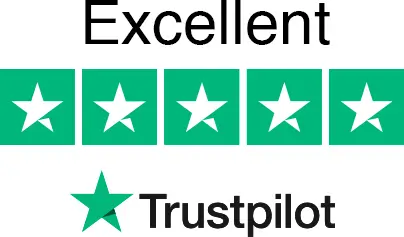Key Takeaways
- A data controller is the individual or organisation deciding why and how personal data is processed under UK GDPR and the Data Protection Act 2018.
- If you are a UK business or sole trader and decide on the collection or use of personal data, you are almost certainly a data controller.
- Misclassifying your role—controller or processor—can cause serious legal issues, enforcement action, or fines from the ICO.
- Data controllers must comply with legal duties including maintaining records, publishing a privacy notice, and responding to data subject access requests (DSARs).
- If two businesses jointly decide on data use, both become joint controllers and share liability for compliance.
- Essential documents for controllers include an up-to-date privacy notice and comprehensive data processing agreements with any processors.
- Controllers are responsible for fair, lawful, and transparent data processing, always requiring a valid lawful basis.
- Our platform at Go-Legal AI offers step-by-step tools and templates to help you meet every data controller obligation, including action checklists and guidance.
- Go-Legal AI is rated Excellent on Trustpilot with over 170 five-star reviews from real users.
- Accurately identifying your role and duties as a data controller protects your business, prevents costly mistakes, and builds client trust.
What Does It Mean to Be a Data Controller in the UK?
Are you unsure whether your business is a data controller? Many UK startups, charities, and small businesses get tangled in data protection obligations, especially under the UK GDPR. A simple classification error—thinking you are “just a processor” when, in reality, you are the controller—can lead to damaging fines, regulatory action from the ICO, or reputational damage with customers.
If you control the purpose (why) and the means (how) of collecting or handling people’s personal data, you are a data controller. Under UK law, this status carries direct legal obligations, from creating transparent privacy notices to managing data subject access requests and more. Clarity on your role is not just a formality—it is a legal foundation to protect your business.
This guide demystifies the UK data controller definition in plain English, with practical tools and expert tips. You’ll learn how to accurately determine your role, what steps you must take to comply, and how to stop compliance from slowing your growth. At Go-Legal AI, we’re here to help you meet your data protection obligations with expert support and intuitive solutions.
What Is a Data Controller Under UK Law?
A data controller under UK GDPR is defined by the Information Commissioner’s Office (ICO) as: “the person, company, or other legal entity who determines the purposes and means of processing personal data.” In other words, the controller makes the key decisions:
- What information is collected?
- Why is it collected?
- How is it used, stored, or shared?
If you answer these questions for your business or charity, you are legally the data controller—even when using service providers (like cloud companies or agencies) to process the data on your behalf.
Controllers can be more than just limited companies. Individuals (acting outside purely personal or household matters), partnerships, charities, local councils, and community groups can all be data controllers in the UK.
A new digital subscription platform, BrightReads Ltd, collects email addresses to send newsletters and manage user accounts. Because BrightReads decides why and how this personal data is processed, it is a data controller.
Even if you outsource processing to an IT provider or freelance admin, you remain the data controller if you set the rules. The ‘personal use’ exemption is very narrow in UK law—business activities almost always fall outside of it.
How Do I Know If I Am a Data Controller or Data Processor?
Unsure whether you’re a controller or just a processor? Use this decision tool, based directly on ICO guidance.
Practical Data Controller vs. Processor Decision Tool
Ask yourself these questions:
- Do I decide why personal data is collected?
- Do I decide how the data is used, stored, or shared?
- Do I set data protection policies or methods?
- Can I alter how and for what the data is used?
If you answer YES to most, you are a data controller.
If you only handle data strictly according to another party’s written instructions, without independent decisions, you are a data processor.
| Scenario Explanation | You Are Likely a… |
|---|---|
| Decide the reason for collecting data | Data Controller |
| Set data processing rules or methods | Data Controller |
| Follow another’s explicit instructions without discretion | Data Processor |
| Change how or why the data is used at your initiative | Data Controller |
- A bookkeeping firm is given access to payroll data but only processes it according to explicit client instructions—here, it acts as a data processor.
- A fitness studio collects client health details for its own scheduling and client management—this makes it a data controller.
- A SaaS (cloud software) provider offering a platform but not using client data for its own purposes is a data processor for client-uploaded data.
Always be clear which role you play. Getting it wrong can lead to unsuitable contracts, missed compliance duties, and even enforcement fines. Unsure? Using our AI-powered Data Protection Status Tool will help you clarify your status quickly, with recommended templates tailored to your situation.
⚡ Get legal tasks done quickly
Create documents, follow step-by-step guides, and get instant support — all in one simple platform.
🧠 AI legal copilot
📄 5000+ templates
🔒 GDPR-compliant & secure
🏅 Backed by Innovate UK & Oxford
What Are the Key Responsibilities of a Data Controller in the UK?
Data controllers have distinct legal duties under the UK GDPR and Data Protection Act 2018. Neglecting your responsibilities—no matter your business size—invites investigation, public enforcement, and possible fines by the ICO.
| Duty/Responsibility | What It Means | Risks if Missed |
|---|---|---|
| Select a Lawful Basis | Choose and document legal grounds for processing every dataset | Unlawful processing; substantial fines |
| Provide a Privacy Notice | Clearly explain data use, retention, and individuals’ rights | Complaints to ICO; enforcement risk |
| Secure Data | Implement technical and procedural measures to protect data | Data breaches; reputation harm; penalties |
| Notify About Security Breaches | Promptly report qualifying breaches to ICO and affected people | Escalated fines; loss of trust |
| Contractor & Processor Oversight | Use compliant processor contracts and supervise processors | Shared liability for processor failures |
| Respond to Data Rights Requests | Handle DSARs (data access requests) accurately and on time | Legal liability; regulatory fines |
| Keep a ROPA | Maintain detailed processing records for accountability | Cannot demonstrate compliance; legal gaps |
PhotonMark Ltd, a high-growth agency, reviewed its handling of customer data. It found gaps in privacy notices, records of processing, and contracts with a third-party IT firm. After using an AI audit checklist, it addressed each compliance shortfall and updated its processor agreements.
Your privacy notice should always match the latest way your business handles personal data. Even forgetting to add a new email tool or sign-up form creates risk—schedule privacy policy reviews every quarter.
Need an easy way to stay compliant? Our AI-powered contract review and privacy notice generator help you instantly identify missing requirements and stay audit-ready.
Data Controller vs. Data Processor vs. Data Subject: What’s the Difference?
Understanding these roles is at the core of UK GDPR. Controllers set the rules; processors follow instructions; data subjects are individuals whose data is processed.
| Role | Responsibilities Under UK GDPR | Example Scenario |
|---|---|---|
| Data Controller | Full compliance: lawful basis, transparency, security, data rights, contracts | An employer storing and using staff data |
| Data Processor | Follow controller’s instructions, keep data secure, assist with compliance | A cloud service providing storage for a retail chain |
| Data Subject | Individual whose information is held—has rights (access, correct, delete data) | A customer signing up for a loyalty card |
A retail platform hires a digital agency to run its ads. The retailer provides the data and approves all campaigns—it’s the data controller; the agency is the processor, acting only on agreed instructions.
Even if a processor causes a data breach, the controller is still ultimately responsible under UK law. Maintaining robust agreements and oversight prevents unexpected liability.
What Is Joint Controller Status and When Does It Apply?
Joint controllers are two or more organisations making shared decisions about how and why personal data is processed. This typically happens where two businesses co-host an event, run a joint campaign, or share a customer database for integrated services.
Joint controller status gives rise to joint and several liability: each controller is independently responsible for compliance. If a complaint arises, the ICO or a data subject can pursue action against either party.
A written joint controller agreement is vital, defining each party’s duties and explaining who will handle data rights requests or respond to data breaches.
Imagine CodeForge Ltd and StartTech LLP co-host a tech expo and jointly collect attendee contact details to send updates and offers. Both businesses decide how data is used, so both are joint controllers—both liable for protecting attendee data and for transparency.
Joint controllers should set out clear arrangements in writing, publish a joint privacy notice, and communicate responsibilities to data subjects upfront.
What Legal Documents and Records Must a Data Controller Keep?
Comprehensive documentation is critical for legal compliance and is the first thing the ICO will ask for in the event of an investigation. The following records are your compliance backbone:
| Document/Record | Who Needs It | Reason & Use |
|---|---|---|
| Privacy Notice | All controllers | Inform individuals and meet transparency requirements |
| Record of Processing Activities (ROPA) | Controllers (esp. 250+ staff or high risk) | Evidence for compliance and audits |
| Processor Agreements | Where using processors | Mandate proper safeguards & record responsibilities |
| Data Mapping / Audit Log | All controllers | Capture all processing activities for accountability |
| Data Protection Impact Assessments (DPIAs) | Processing high-risk data | Proactively manage risks and show due diligence |
| DSAR Logbook | All controllers | Track rights requests and responses |
| Breach Register | All controllers | Record details of any personal data breaches |
A London-based recruitment firm keeps a version-controlled ROPA, updates its privacy policy every six months, and runs processor contract audits whenever it changes software providers—ensuring no important step is overlooked.
Assign responsibility for these records to a key team member and diarise file reviews. A missing or out-of-date privacy notice is one of the most common reasons for ICO investigation.
Need these records sorted fast? Download our complete compliance toolkit and privacy notice template—proven to meet ICO standards and save admin time.
Step-by-Step Guide: How to Comply as a Data Controller in the UK
Your Actionable Compliance Checklist
- Map all data flows: List exactly what personal data you collect, how it’s acquired, where it’s stored, and who can access or share it.
- Record lawful basis: For every processing activity, note the legal reason—consent, contract, legal obligation, legitimate interests, or other GDPR bases.
- Draft and update key documents: Create a transparent privacy notice, up-to-date processing records, and written agreements with processors.
- Implement DSAR and breach response procedures: Set up protocols to handle rights requests within 30 days and breach reporting with clear roles.
- Schedule compliance reviews: Revisit your privacy, security measures, and paperwork at least annually, or when business processes change.
Urban Studio Ltd, a creative agency, used our compliance checklist to map all customer and staff data, update their privacy notice, and implement a new DSAR response policy—staying prepared for any ICO scrutiny.
Meticulous documentation is your best protection. If you can clearly demonstrate your decisions and steps with written records, you significantly reduce the risk of enforcement penalties.
Our audit checklists and templates provide a guided compliance pathway—saving you days of research and document drafting.
What Happens If You Misclassify Your Organisation’s Data Protection Role?
Misclassifying your status can be a costly mistake. If you treat your business as a processor when it is actually a controller, you risk non-compliance with privacy laws, leading to:
- ICO enforcement action, including fines that can cripple smaller businesses.
- Contractual disputes where obligations are unclear or not covered.
- Loss of client trust and potentially high-profile publicity around any breach.
- Direct legal claims from individuals for mishandling or misuse of data.
A Manchester-based marketing consultancy believed it was a processor for all client work, but in practice selected which customer data to use and set campaign parameters. When a client complained, the ICO found the consultancy operated as a controller, had not provided privacy notices, and had no record of data processing decisions. The result: a £25,000 fine and termination of lucrative contracts.
When in doubt, err on the side of controller-level compliance, keeping full documentation and contracts in place rather than risk a compliance gap.
How Go-Legal AI Simplifies Data Controller Compliance
Go-Legal AI removes the complexity from UK data protection obligations, giving you robust, accessible solutions:
- Instant role checker: Use our AI-powered checker to clarify if you are a controller, processor, or joint controller, with simple explanations and next steps.
- 5,000+ GB GDPR-compliant templates: Instantly generate privacy notices, processor contracts, and DPIAs specifically tailored for the UK.
- AI audit support: Run automated compliance audits and receive custom recommendations to address gaps.
- Document review tools: Upload your privacy notice, contracts, or policies and receive instant feedback against ICO expectations.
- On-demand expert support: Affordable packages for startups, charities, and SMBs, with support from data protection specialists.
Ready to make compliance stress-free? Start using our privacy notice and contract builder, or run your first compliance audit—all in one secure dashboard.
Frequently Asked Questions
Who qualifies as a data controller under UK GDPR?
Any individual, business, charity, partnership, or public entity making decisions about why and how personal data is processed is a data controller in England & Wales, per ICO guidance.
Can a sole trader be a data controller?
Yes. For example, a freelance consultant who stores client details for business management is a data controller and must comply with UK GDPR.
What are the legal duties of a data controller in the UK?
Controllers must: select a lawful basis; issue a privacy notice; keep data secure; report qualifying breaches; hold compliant processor contracts; process data rights requests within deadlines; and maintain clear processing records.
Do I need a privacy notice as a data controller?
Yes. A privacy notice is a legal requirement for data controllers and should be easily accessible, written in clear language, and regularly updated.
When do I need to appoint a Data Protection Officer?
A DPO is only compulsory where your business conducts large-scale, regular and systematic monitoring, or handles large-scale special category/criminal data. Most SMEs are exempt, but regular reviews are recommended.
Can you be both a data controller and a processor?
Yes. A business can act as a controller for its in-house marketing list, but be a processor for client-provided customer data it manages as part of a service.
What records must a data controller maintain for compliance?
You must maintain a privacy notice, ROPA, processor contracts, data map/audit, DSAR log, DPIA (when relevant), and a breach register.
How do joint controllers share liability?
Joint controllers share “joint and several liability.” Each party can be held fully liable for any breach, even if only one is at fault.
What is a Record of Processing Activities (ROPA)?
A ROPA is a written record of all personal data handled by your organisation. It is mandatory for controllers with 250+ staff or high-risk processing, but best practice for all.
How can my business prove GDPR compliance as a controller?
Keep written records of all compliance steps—privacy notices, contracts, risk assessments, audit logs, and regular updates.
Struggling with compliance or paperwork? Try our AI-powered checklist and template library to get—and stay—compliant with ease.
Take Control of Your Data Controller Compliance with Go-Legal AI
Getting your status and responsibilities right as a data controller isn’t just legal formality—it’s key to protecting your business, unlocking new opportunities, and building customer trust. Relying on outdated templates or poorly understood roles exposes your business to fines, disputes, and lost contracts.
With Go-Legal AI, UK startups, SMEs, and charities stay ahead. Access expert role checks, 5,000+ tailored templates, instant audits, and on-demand legal support—all built to UK standards. Move from risk to resilience—free from legal headaches or high fees.
Start your compliance journey now. Use our contract builder or run a compliance audit—create ironclad privacy notices and controller agreements in minutes, not weeks.
⚡ Get legal tasks done quickly
Create documents, follow step-by-step guides, and get instant support — all in one simple platform.
🧠 AI legal copilot
📄 5000+ templates
🔒 GDPR-compliant & secure
🏅 Backed by Innovate UK & Oxford










































